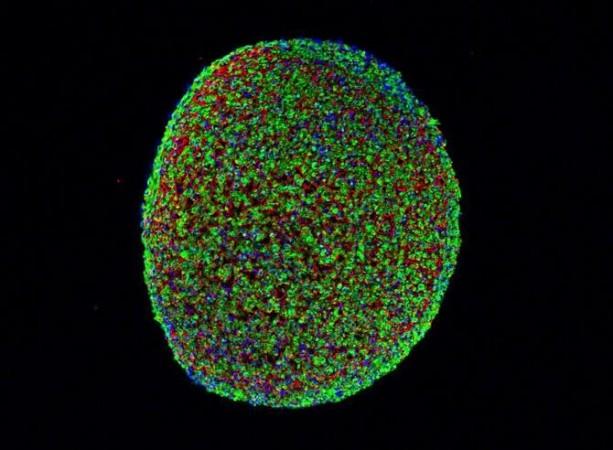![A researcher works in his laboratory at the Institute for Stem cell Therapy and Exploration of Monogenic Diseases (I-Stem) in Evry, near Paris November 27, 2009. [Representational Image] Science Laboratory](https://data1.ibtimes.co.in/en/full/556294/science-laboratory.jpg?w=449&h=315&l=50&t=40)
Medical research in India that involves stem cells will now come under the purview of India's health ministry. Stem cell therapies have so far operated outside the law with several medical practitioners offering unregulated miracle cures.
Under the draft Drugs and Cosmetics (Amendment) Rules of 2018 that was issued for consultation in April, the regulation of stem cell-based products as drugs was included. This move has brought all such medical research and practise under the Drugs and Cosmetics Act of 1940, said a statement.
As a result, all clinical use of stem cells and related products now need to go through extensive clinical trials where they will have to prove safety and efficacy, notes the statement. Once they are proven in labs, medical centres need to get licenses for manufacture and sale of the medication. This is similar to the way new drugs are entered into the market- after clinical research and acquiring proof— where the standards are known to be tough and rigorous.
In case these conditions are not met, clinics and hospitals that have so far offered stem cell therapies will not be allowed to.

What are stem cells?
Before getting into how they can be therapeutic, it is important to first understand what stem cells are. The stem cells are present in both animals as well as plants and are known to be "undifferentiated cells", in that they are like blank cells which can either divide into "differentiated cells" which can go on to becoming specific tissue, bone or organ cells, or can simply remain in the form of stem cells.
Stem cells have the option to become a whole new type of cell and this property has been a subject of intrigue for researchers. It has also progressed into therapeutic application in some limited cases. In theory, these cells can be used to effectively treat several degenerative diseases by regrowing lost cells in the brain, spine, or even replace cancer cells.
The practical application of stem cell therapy is not so simple. It is a complex subject that scientists around the world are still only trying to fully grasp. At the same time, governments all over the world are finding it equally difficult to regulate.
Stem cell therapy in India going forward
In India, there were approximately 300 such clinics and hospitals that offer untested and unregulated treatment based on stem cells, says the report. The new rules have been designed to regulate these clinics, which are known to charge a massive amount of money for their experimental therapies.
Under the new rules, all stem cell therapy that involve more than "minimal manipulation" that is defined as "ex-vivo [outside of the organism] alteration in the cell population... which is expected to result in alteration of function" will now be treated as a drug. This means it falls under regulatory protocols. The same way new drugs are treated in the medical system- by first establishing safety through clinical trials, then going on to obtain license.
Along with this new classification of stem cell therapy as drugs, last year, the Department of Biotechnology and the Indian Council of Medical Research outlined that every instance of clinical use and research with stem cells should only ever be done as a clinical trial. It was done under "National guidelines for stem cell research". This should also be conducted free of charge for all patients and the medical practitioner needs to get the approval of the Central Drugs Standard Control Organization, notes a report by India Spend.
Clinics and hospitals have also been ordered to stop all forms of advertising that point out to it offering stem cell therapy.
The new rules apply to both types of stem cell therapies—autologous stem cells that are taken from the patient's body as well as homologous stem cells, where stem cells are taken from another person.





!['It's not Mumbai traffic, it's air traffic': Suriya apologises to Mumbai media after paparazzi yelled At Him for making them wait for hours [Watch]](https://data1.ibtimes.co.in/en/full/806234/its-not-mumbai-traffic-its-air-traffic-suriya-apologises-mumbai-media-after-paparazzi.jpg?w=220&h=138)
![Bigg Boss 16-fame Sreejita De and Michael Blohm-Pape exchange wedding vows in dreamy Bengali ceremony [Inside Pics]](https://data1.ibtimes.co.in/en/full/806233/bigg-boss-16-fame-sreejita-de-michael-blohm-pape-exchange-wedding-vows-dreamy-bengali-ceremony.jpg?w=220&h=138)






